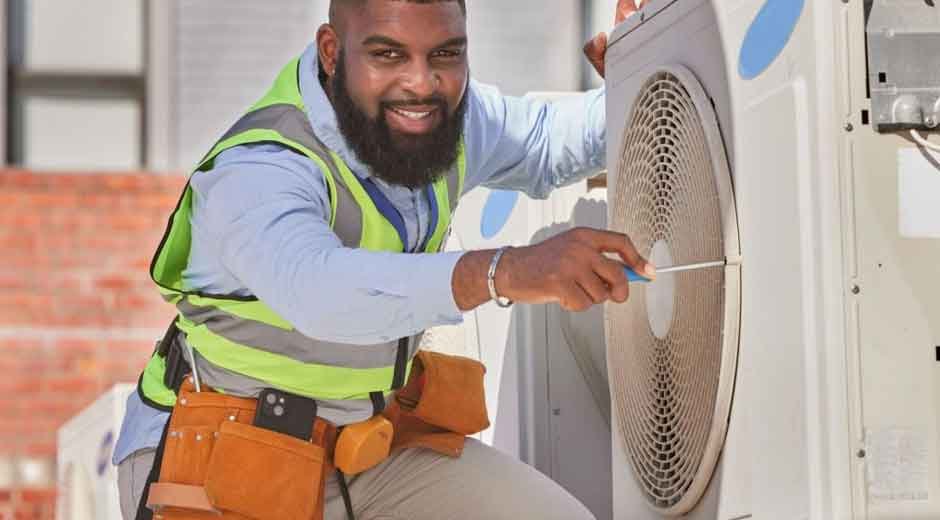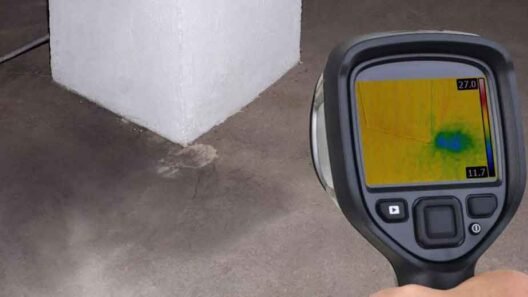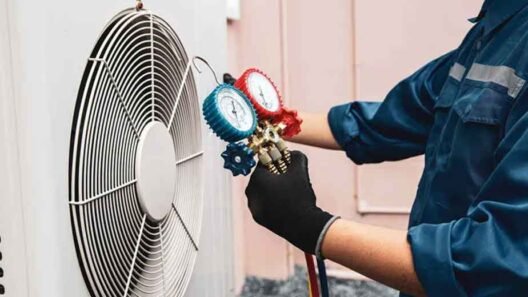HVAC systems play a vital role in keeping homes and workplaces comfortable throughout the year, whether it’s the middle of summer or the depths of winter. However, many property owners tend to overlook regular maintenance, assuming that their system is functioning fine as long as it’s blowing hot or cold air, notes TRI Property Pros team. In reality, this can result in high costs over time, including both increased energy bills and repair fees. Consistent maintenance isn’t just about comfort or cleanliness; it’s a financial decision that pays off. We will explore how staying on top of HVAC servicing can help avoid long-term expenses, extend the life of your equipment, and ultimately result in greater financial control and peace of mind.
How Consistent HVAC Maintenance Leads to Long-Term Savings
- Lower Energy Bills Through Increased Efficiency
One of the most immediate financial benefits of regular HVAC maintenance service is reduced energy consumption. When filters are clogged, coils are dirty, or internal parts are misaligned, your HVAC system must work significantly harder to maintain your desired indoor temperature. This increased workload directly translates to higher energy bills. By regularly cleaning and tuning the system, airflow is improved, parts operate as they should, and energy isn’t wasted trying to compensate for minor inefficiencies.Comparing energy rates and efficiency metrics through resources like Utility Bidder can further support cost-saving decisions and long-term efficiency planning.
Over time, even small efficiency improvements can result in substantial cost savings. For example, a system that’s just 10% more efficient could lead to hundreds of dollars saved annually, depending on your usage and climate. Moreover, energy costs tend to rise gradually over time, so preventing your HVAC system from working overtime becomes increasingly valuable with each passing year. With scheduled checkups, these small issues are addressed before they become long-term burdens on your utility bill.
- Fewer Emergency Repairs and Breakdowns
Another key area where maintenance brings financial benefits is in reducing the frequency and severity of unexpected repairs. When systems are not regularly inspected, minor problems such as worn belts, loose electrical connections, or low refrigerant levels can develop into major system failures. Emergency repairs tend to be more costly, not only because of the urgency, but also due to the extensive damage that may have already occurred. Additionally, breakdowns often happen at the worst possible times—during heatwaves or cold snaps—when demand for HVAC technicians is high and repair costs can surge.
Regular maintenance identifies these small problems early, preventing them from becoming emergency expenses. Technicians can proactively replace parts, tighten connections, and ensure that everything is operating smoothly. This preventive approach keeps your repair budget under control, providing more predictable maintenance costs and making long-term financial planning easier and more accurate.
- Extended Lifespan of Equipment
Replacing an HVAC unit is a significant financial investment, with new systems often costing thousands of dollars, excluding installation fees. Regular maintenance can add several years to your system’s life, significantly delaying that large expenditure. Just like vehicles, HVAC units that are cleaned, inspected, and serviced consistently tend to last longer and operate more efficiently throughout their lifespan. Lack of maintenance, on the other hand, accelerates wear and tear, forcing you into a replacement cycle much earlier than necessary.
For example, a well-maintained HVAC system can last 15 to 20 years, while a neglected one may struggle to reach 10. That five to ten-year difference represents a substantial cost difference, especially when you consider the installation and disruption involved in replacing a unit. With a good maintenance routine, you protect your investment, and the system serves you well for much longer than if it were left to degrade unchecked.
- Preserving Manufacturer Warranties
Many HVAC systems come with manufacturer warranties that cover the cost of repairs or part replacement under specific conditions. However, one commonly overlooked requirement is proof of routine maintenance. If a major issue occurs and you attempt to file a warranty claim, but there’s no record of regular service, the manufacturer can deny the claim, leaving you to pay out of pocket. Keeping up with scheduled maintenance ensures that these agreements remain valid and enforceable. It also means that if a major component fails, you’re more likely to receive a replacement or repair at a significantly reduced cost, or even at no cost at all. Regular service appointments provide documented proof that the system has been properly cared for, reinforcing your position if warranty-related issues ever arise. By maintaining compliance with the terms, you save money by avoiding unexpected repair or replacement expenses that could otherwise have been covered.
The financial value of regular HVAC maintenance extends well beyond immediate comfort or seasonal readiness. From lower energy bills to fewer emergency repairs, from prolonged equipment life to preserved warranties and better health, the benefits compound over time. Every maintenance check is an investment in long-term savings, stability, and efficiency. Skipping routine servicing may seem convenient in the short term, but it often leads to unpredictable costs that far exceed the price of maintenance itself. For homeowners and business owners alike, prioritizing HVAC maintenance is a practical decision that safeguards comfort and supports financial well-being well into the future.













